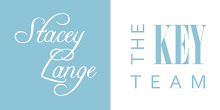Case-Shiller index shows 1.6% gain in July, a sign that recovery may be in motion.
By Les Christie, CNNMoney.com staff writer
Last Updated: September 29, 2009: 10:37 AM ET
NEW YORK (CNNMoney.com) -- There was another tick-up in home prices in July, a further indication that housing markets may be stabilizing, according to a report issued Tuesday
Prices for the S&P Case-Shiller Home Price index of 20 cities rose 1.6% from a month earlier, the third consecutive month of gains. They went up 1.4% in June.
Prices were still down 13.3% compared with July 2008, but even that performance was better than expected. A panel of industry experts surveyed by Briefing.com had forecast a 14.2% loss.
"The rate of annual decline in home price values continues to decelerate and we now seem to be witnessing some sustained monthly increases across many of the markets" said David Blitzer, chairman of the Index Committee at Standard & Poor's.
Craig Thomas, a senior economist with PNC Financial Services Group, called the report very encouraging.
"The rule of thumb is that three observations is a trend," he said. "There have been three straight good reports, so, this is a trend."
The home-price gains also confirmed other positive recent housing reports such as lower inventories and more traffic being reported by home builders, according to Thomas. Trends in other economic indicators, such as job losses and retail sales have also improved lately.
A pattern is developing, according to Lawrence Yun, chief economist for the National Association of Realtors (NAR), one in which stabilizing prices could contribute to a self-sustaining recovery.
"When prices are falling, consumers ask themselves, 'Why buy now when I can buy later for less,'" he said, adding that rising prices are a strong incentive to act more quickly.
Minneapolis' gain: Among the 20 cities, Minneapolis recorded the biggest gain during July; with prices up 4.6%. San Francisco, up 3.3%, and Chicago, 2.7% higher, also recorded sizable gains.
The only price declines occurred in Las Vegas, where they fell 1.1%, and Seattle, down 0.1%.
Las Vegas has become the city hardest hit by foreclosures, which remain one of the big issues facing housing markets.
Yun points out that there will be another foreclosure spike over the next six to 12 months as the terms of option ARMs and interest-only mortgages reset, raising monthly payments for many borrowers and pushing some into delinquency. Foreclosed homes will continue to come back onto the market, padding supplies and dampening prices.
The other major uncertainty is over the first time homebuyers' tax credit that currently gives back up to $8,000 to taxpayers who buy before Dec. 1 and who have not owned a home within the past three years.
Yun credits the tax credit with being a major market stimulus. NAR estimated that an extra 350,000 homes will be sold because of it. There are bills in Congress that would extend the program and even expand it to every home buyer. If none of these are enacted, the market could suffer a reversal.
There will be a clear-cut market recovery because of buyer interest tied to that stimulus, according to Yun, and if the tax credit is allowed to lapse, we could be looking at another bottom coming our way.
The Case-Shiller index compares the sale price of a home to its price the last time it was sold, then factors in changes in prices over time.
That, ideally, yields a more accurate picture of home price fluctuations than simply calculating the median or average prices of all homes sold during the month. Those averages can be skewed by changes in the mix of homes sold during any one period
Tuesday, October 6, 2009
Subscribe to:
Post Comments (Atom)







No comments:
Post a Comment